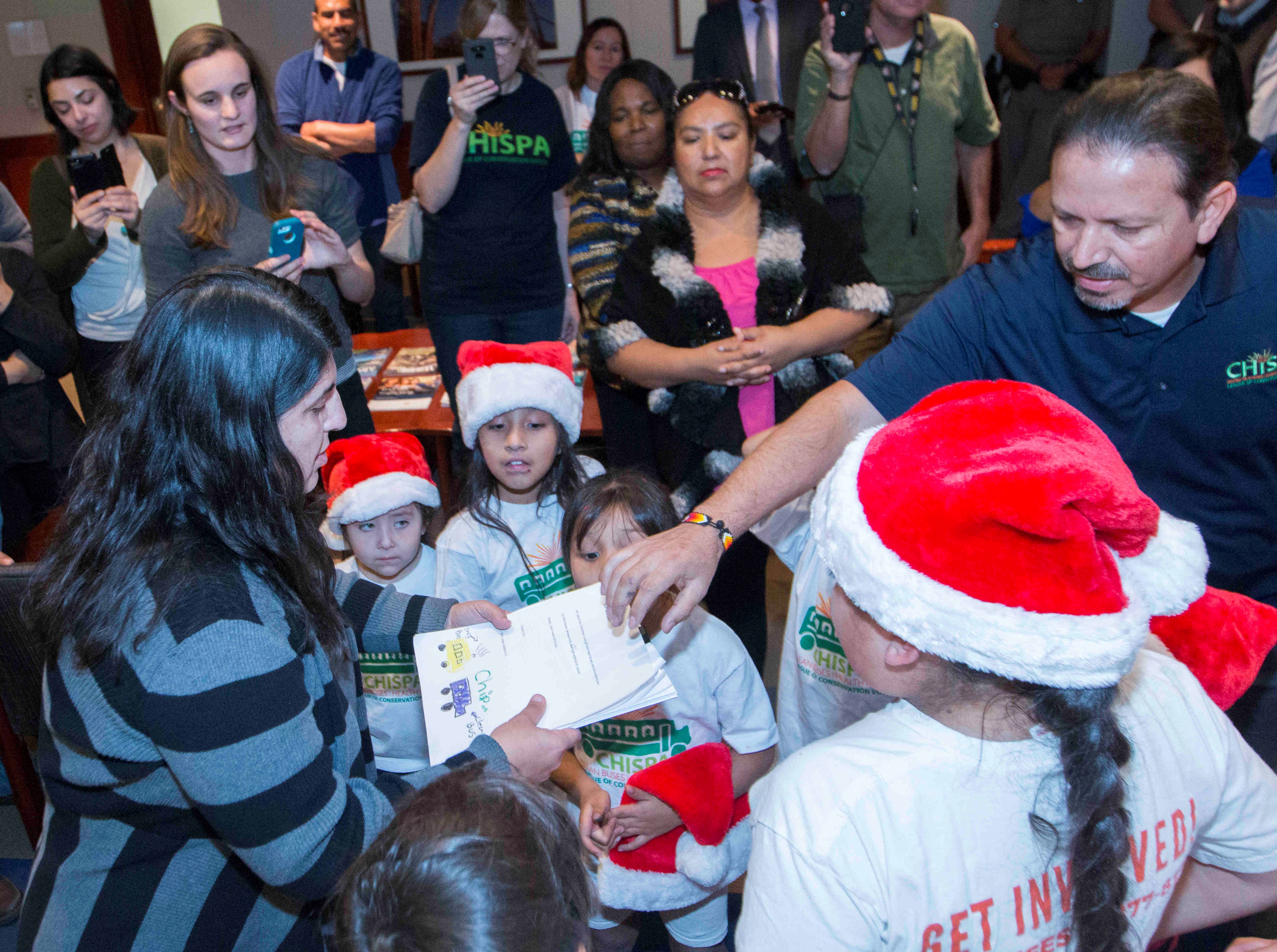Chispa Arizona delivered a petition on behalf of 16,447 Arizonans to the State Capitol to demand Governor Ducey use Volkswagen settlement funds to buy zero-emission electric buses, replacing diesel-powered school buses that expose schoolchildren to dirty air and cancer-causing pollutants.
Outside of the Capitol building, State Rep. Charlene Fernandez and two of Chispa AZ’s youth advocates, Oslin Lopez, 10, and Tonantzin Perea, 9, described how the state’s current diesel buses pollute neighborhoods and the air children breathe. In Arizona, 300,000 children ride diesel school buses to and from school each day.
Lopez and Perea read from letters to Governor Ducey asking for his pledge to help bring cleaner air to communities across the state.

“All I want for Christmas is for Governor Ducey to let us have clean buses,” said Tonantzin Perea, one of about 20 children who helped deliver the petitions to the governor’s ninth floor office.
Chispa AZ community organizers described how children and families in low-income and communities of color are most at risk of breathing dirty air and suffer disproportionately from respiratory problems.
“We have public schools that are in trouble, that can’t always put money into building up their infrastructure, including the maintenance of buses,” said Rep. Charlene Fernandez. “We believe that $57 million should be appropriated for buses at our public schools, to bring those buses up to code, to make sure they are no longer diesel polluting. We must protect our children.”
Chispa, a community organizing program of the League of Conservation Voters, started the Clean Buses for Healthy Niños campaign after Volkswagen was found to have cheated on federal emissions tests and polluting our air for years. Volkswagen is now paying a $14.7 billion settlement, and Arizona stands to receive $57 million through the Volkswagen Environmental Mitigation Trust.
” This is an opportunity to take bold action to put the clean air and the health of our youth and communities first by transitioning to clean, electric buses,” said Masavi Perea, director of Chispa AZ. “There is an unspoken disparity in our schools, with kids from low income and communities of color facing the highest rates of air pollution and respiratory illness. We are hopeful that Gov. Ducey will take this important step toward making sure all of our kids breathe clean air.”
Representatives from Sierra Club, Moms Clean Air Force, Arizona Stands and Earth Care Committee, as well as six local families, were also present to support the petition. They also discussed how electric buses could help mitigate the effects of climate change while saving school districts $11,000 per year.
Chispa AZ is a community organizing program of the League of Conservation Voters. Chispa builds the capacity of Latinos and families to influence policymakers and pressure polluters to protect communities’ rights to clean air and water, healthy neighborhoods, and a safe climate for generations to come.
